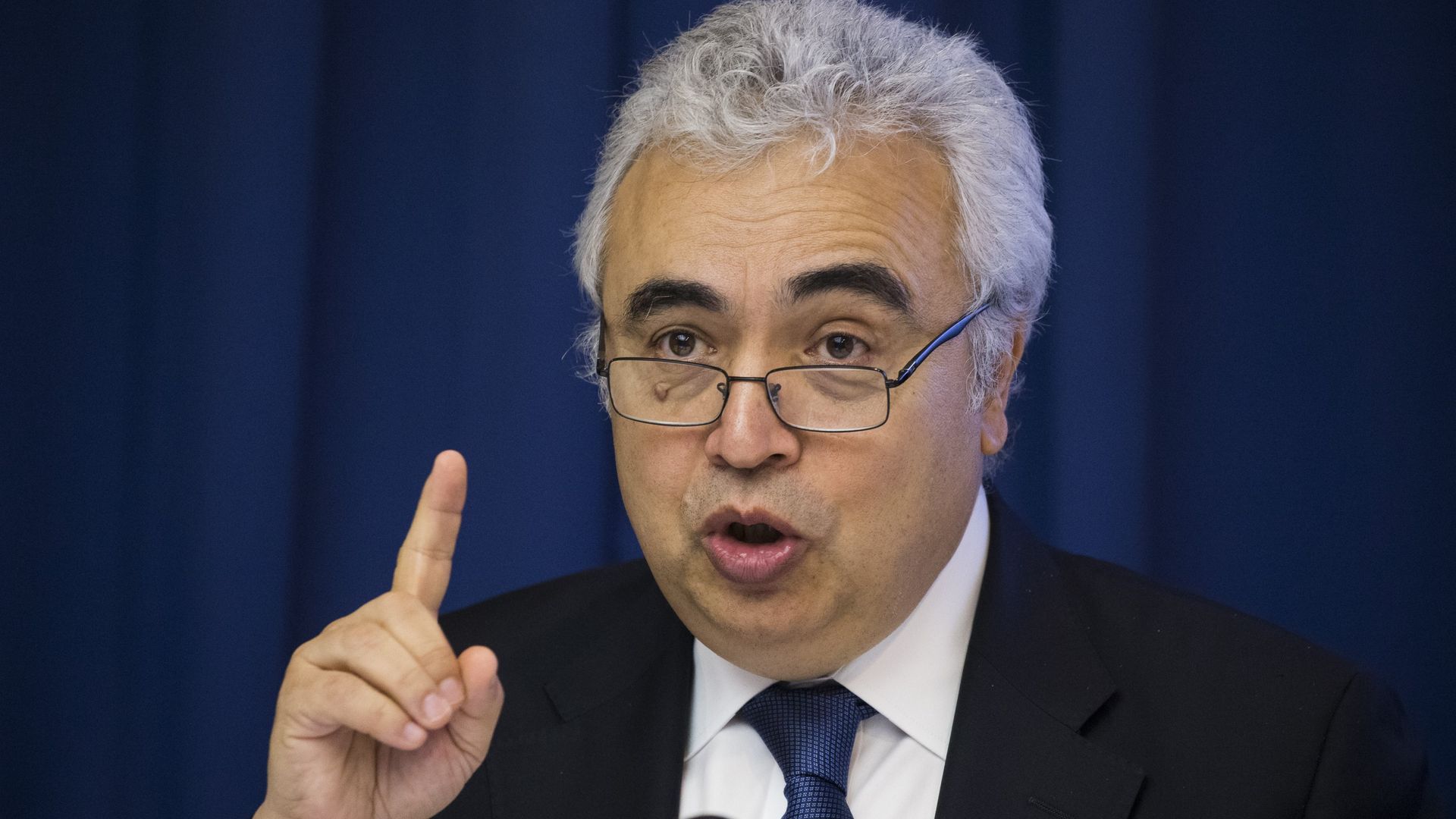Updated Jun 26, 2018 - Energy & Climate
International Energy chief addresses big oil’s small carbon footprint
Add Axios as your preferred source to
see more of our stories on Google.

Fatih Birol, head of the International Energy Agency (IEA). Photo: Samuel Corum/Anadolu Agency via Getty Images
